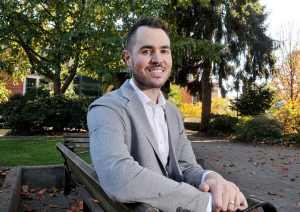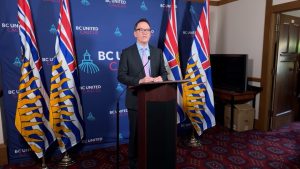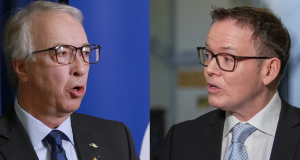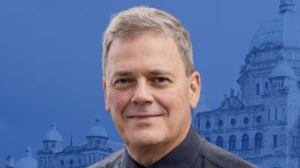Prof. Kathryn Harrison on Pierre Poilievre’s campaign to abolish carbon pricing
Professor Kathryn Harrison says that Poilievre’s campaign argues that “Canadians are mainly concerned about the cost of living, and that by tackling it, climate problems will become less important” but this nostalgic language is incompatible with today’s reality.
Prof. Stewart Prest on NDP’s vulnerability during the spring session
Professor Stewart Prest explains that the B.C. NDP spent the spring session playing defence and many of their “bold proclamations” have not had time to make an impact.
Prof. Stewart Prest comments on why Coquitlam’s mayor was rumoured to be leader of a B.C. United and Conservative merger
Professor Stewart Prest says Port Coquitlam Mayor Brad West’s popularity stems from his ability to operate in an “open space” and not be restricted by a political party. This appeals to voters tired of “polarized rhetorical debate.”
Prof. Stewart Prest says a merger between B.C. United and B.C. Conservatives is unlikely
Professor Stewart Prest says a formal merger between the B.C. United and B.C. Conservatives would be difficult as each party has tried to “occupy quite distinct spaces on the political spectrum,” but informal co-operation may make competing with the NDP easier.
Prof. Gerald Baier explains the potential merger of B.C. United and B.C. Conservatives
Professor Gerald Baier says that it is “a well-known historical fact that the centre-right can’t win as two parties in B.C.”
Prof. Gerald Baier discusses the difficulties of a merger between B.C. United and B.C. Conservatives
Professor Gerald Baier says a merger between the B.C. United and the B.C. Conservatives would be difficult within the five months before the October election given the uncertainties of who would lead the new party and its name.
Prof. Stewart Prest explains Poilievre’s campaigning on Vancouver Island
Professor Stewart Prest explains that resource-dependent ridings in Vancouver Island’s rural areas and small towns are the most susceptible to Conservative messaging. However, their lack of environmental messaging may pose a problem for voters.
Prof. Gerald Baier discusses B.C. United’s campaign struggles
Professor Gerald Baier explains that B.C. United does not fully own the B.C. NDP opposition votes in this election. The division could be a “disaster” for several parties as the centre and centre-right vote typically only succeed when unified.
Prof. Stewart Prest discusses B.C. NDP’s push to become a ‘Big-tent’ party
Professor Stewart Prest explains that the B.C. NDP have shifted their focus to appeal to middle class voters and become a big tent party of the left and centre, but this could also alienate their traditional working class voters.
Prof. Stewart Prest says the B.C. Conservatives need more appeal to capture voters
The Conservative Party of B.C. recently dropped two candidates after misinformation accusations. Professor Stewart Prest says that the party must appeal to “middle of the road” voters to become the official opposition.









